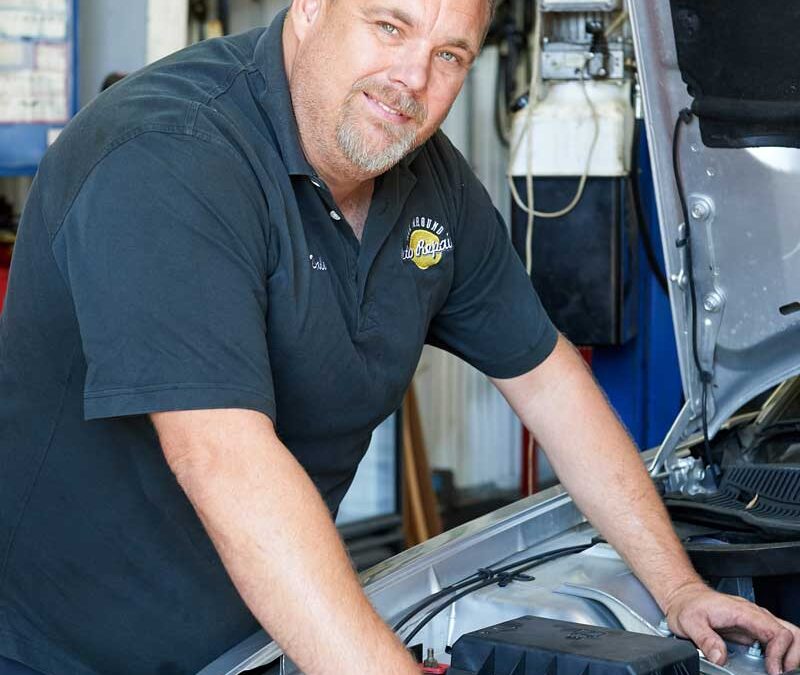Ask five different auto mechanics to lay out the differences between an automotive technician and a mechanic and you’re likely to get eleven different answers and a lecture with bullet points. What gives? Are they really that different? Yes and no.
Auto Mechanics Versus Automotive Technicians
Part of the difference between auto mechanics and automotive technicians is mere perception, and some of the difference resides with the kind of work that each does.
In other words, there is some actual difference between the two…but they can overlap in their job duties. For instance, an auto mechanic who specializes in onboard electronics and performance diagnostics would more aptly be called a technician.
The interesting thing to bear in mind is that an auto mechanic might actually be able to work on a greater range of vehicles because an auto technician might only know how to deal with the electronics of a limited range of vehicles. Most mechanical systems on a vehicle are fairly similar whereas the electronics can differ fairly dramatically.
Now, we’re getting somewhere – when folks use the term automotive technician, they’re likely referring to someone who’s a specialist with onboard electronics. Conversely, when someone refers to an auto mechanic they’re likely alluding to that professional’s skill as a mechanical specialist.
So, in some sense an auto mechanic is a specialist with the mechanical systems of a vehicle, and an automotive technician is a specialist with the electronic, software, and computer systems of a vehicle.
Two Sides of Same Coin
The thing to realize is that these systems on your vehicle – the mechanical systems and the electronic systems – increasingly interact depending on the age of your vehicle.
Modern vehicles have a host of electronic sensors and systems for regulating everything from the engine, ignition, and tire pressure to fuel efficiency and telematics.
Because these electronics systems can be largely mechanical in how they operate, the ASE-certified mechanics that you’ll find at All Around Auto Repair get training in both the electronics (automotive technican) and mechanics (auto mechanic) of vehicle diagostics and repair.
Asking the Professionals: What They Say
The National Institute for Automotive Service Excellence (ASE) requires at least two years of relevant work experience in order to receive certification.
Simply put, to attain the status of Master Automotive Technician by the ASE someone entering the field would have to have experience with both vehicle electronics and mechanics, thus blurring the line between auto mechanic and auto technician.
Then again, consider that people – some but certainly not all – in the field actually use the term “technician” to refer to a specialist who predominately handles the onboard electronics and software side of the automotive repair equation, or has greater training in that area. Here’s some context…
Back in 1996 – those halycon days of cheesy sitcoms, corny hats, and flamboyant outfits – the second generation of onboard vehicle diagnostics was introduced. This fundamental change in how vehicle manufacturers went about business required a rethinking of automotive repair.
Necessity is the Mother of Invention
Enter the modern-day auto technician. Trying to discover the most efficient way to diagnose vehicle issues with the aid of diagnostic tools at the dealership informed the need for niche training for an automotive technician. Necessity is the mother of invention, as the saying goes.
The more complicated the nuances of these onboard electronic systems became, the greater the need for advanced training for automotive technicians.
That said, automotive technicains and auto mechanics both benefit from this increase in specialization in the same way that Henry Ford’s pioneering the assembly line changed society and made manufacturing huge quantities much more efficient.
In this case, though, you’re talking about auto repair. Greater specialization means that you can come in to All Around Auto Repair and have one ASE-certified professionals work with computer, software, and onboard diagnostics (the electronics side) and another working on the actual mechanics simultaneously. This saves you time and money.
When it comes to 21st-century auto repair, the work of an automotive technician and that of an auto mechanic truly are two sides of the same coin. Now, the only question is, are you overdue for maintenance or repairs? If you think you might be, schedule an appointment with All Around Auto Repair.


